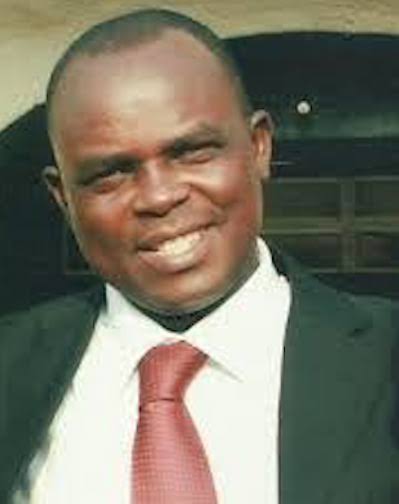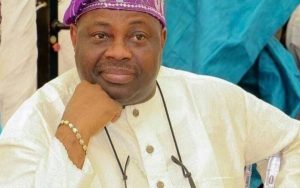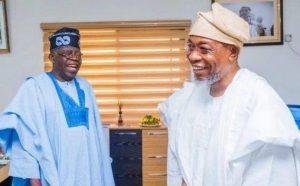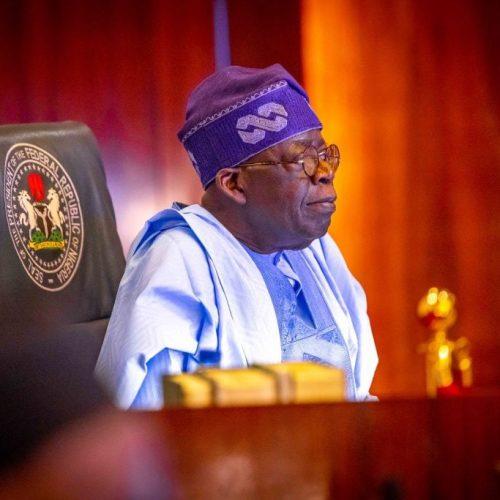By Bolanle BOLAWOLE
turnpot@gmail.com 0705 263 1058
´And the LORD sent Nathan unto David. And he came unto him, and said unto him, There were two men in one city; the one rich, and the other poor. The rich man had exceeding many flocks and herds: but the poor man had nothing, save one little ewe lamb, which he had bought and nourished up: and it grew up together with him, and with his children; it did eat of his own meat, and drank of his own cup, and lay in his bosom, and was unto him as a daughter. And there came a traveller unto the rich man, and he spared to take of his own flock and of his own herd, to dress for the wayfaring man that was come unto him; but took the poor man’s lamb, and dressed it for the man that was come to him. And David’s anger was greatly kindled against the man; and he said to Nathan, As the LORD liveth, the man that hath done this thing shall surely die: and he shall restore the lamb fourfold, because he did this thing, and because he had no pity. And Nathan said to David, Thou art the man. Thus saith the LORD God of Israel, I anointed thee king over Israel, and I delivered thee out of the hand of Saul; and I gave thee thy master’s house, and thy master’s wives into thy bosom, and gave thee the house of Israel and of Judah; and if that had been too little, I would moreover have given unto thee such and such things. Wherefore hast thou despised the commandment of the LORD, to do evil in his sight? thou hast killed Uriah the Hittite with the sword, and hast taken his wife to be thy wife, and hast slain him with the sword of the children of Ammon. Now therefore the sword shall never depart from thine house; because thou hast despised me, and hast taken the wife of Uriah the Hittite to be thy wife. Thus saith the LORD, Behold, I will raise up evil against thee out of thine own house, and I will take thy wives before thine eyes, and give them unto thy neighbour, and he shall lie with thy wives in the sight of this sun. For thou didst it secretly: but I will do this thing before all Israel, and before the sun…”- 2 Samuel 12 1- 12.
“Hello my beloved brothers in Israel, I want you to know that we are praying for you, that all members of the Redeemed Christian Church of God all over the world are standing by you at this critical moment. The Almighty God, the holy one of Israel, will give you absolute victory and give you permanent peace from now on in the mighty name of Jesus”- Pastor Enoch Adejare Adeboye, General Overseer, The Redeemed Christian Church of God (RCCG).
Since the creation of Israel in 1948, the Arab world in general and the Palestinians who felt they were displaced from their ancestral homeland in particular have been at war with the new state called Israel. History recalls that both disputants have the same ancestry through Abram/Abraham, who is regarded by Muslims, Christians and Jews as the father of their faith, and who came from Ur in Mesopotamia in present-day Iraq, the country of President Saddam Hussein; remember?
Abraham gave birth to two sons, Ismael (“God hears”) the elder son, from Hagar whom biblical records regard as the bondwoman (Egyptian slave girl of Sarai/Sarah) but whom the Muslims regard as one of the many wives of Abraham, and Isaac (“He will laugh”), the second son from Sarah, whom the Christians/Jews regard as the son of promise. While Ishmael is seen as the ancestor of a wilderness-dwelling Arab tribe to the south-east of the land of Israel (the Ishmaelites), Isaac is seen as the ancestor of the Jews or modern-day Israel.
So, Ishmael and Isaac were half-brothers. Both came from the same loins – the loins of Abraham. So, what is going on between the Palestinians (Hamas) and Jews (Israel) can best be described as the war of brothers or “brothers at war” (apologies, Alex Rutherford). “Brothers at War” is the second instalment in the “Empire of the Mughal” (1530) in which Rutherford tells the story of the second Mughal emperor, Humayun, who loses and then regains the empire bequeathed to him by his father.
Losing/regaining, losing again and regaining again of territory (Palestine/the Promised Land) has been the history of the rivalry between two brothers in the land of Palestine. Shouldn’t outsiders, then, caution themselves and mind their own business? If you cannot make peace between two warring brothers, must you pour petrol into raging fire? Must you take sides between two brothers fighting over what they both perceive, rightly or wrongly, as their father’s patrimony bequeathed unto them for an inheritance?

I decided to ask questions around the Palestinian/Israeli conundrum and here are the answers I received:
- Is Israel a Christian nation? Israel describes itself as a “Jewish and democratic state” and is the only country in the world with a Jewish-majority population. Other faiths in Israel apart from the Jewish faith (73.6 %) include Islam (predominantly Sunni, 18.1 %), Christianity (mostly Melkite and Orthodox, 1.9 %) and the religion of the Druze (1.6 %). The remaining 4.8 % include faiths such as Samaritanism and Baha’i.
- What is the difference between Jews and Christians? Christianity emphasizes faith in Jesus Christ who gives grace, empowerment and guidance for living the moral or holy life while Judaism, the religion of the Jews, teaches a life of holiness through performing ‘mitzvot’ and emphasizes the importance of adhering to the Bible’s standards of social justice as laid down by the prophets.
- What is ‘mitzvot’? It is a Hebrew word that roughly translates to ‘commandments’
- Why is Israel important to Christianity? Many important events in the religion’s history took place there.
- Which religion do the Jews practice? Judaism, the first and oldest of the three great monotheistic faiths. The basic laws and tenets of Judaism are derived from the Torah, the first five (5) books of the Bible.
- Does Judaism believe in Jesus Christ? Judaism does not accept Jesus Christ as a divine being, an intermediary between humans and God, a Messiah or as being holy. Belief in the Trinity is also held to be incompatible with Judaism as are a number of other tenets of Christianity.
- What religion was Jesus’? Jesus was a Jew. He was born of a Jewish mother, in Galilee, a Jewish part of the world. All his friends, associates, colleagues, and disciples were Jews. He regularly worshipped in Jewish communal worship in what were called synagogues. Jesus, however, is the founder of Christianity. The Bible, the holy book of the Christians, narrates the life and teachings of Jesus.
- Who do Jews pray to? God in Judaism has been conceived in a variety of ways. Traditionally, Judaism holds that Yahweh, the God of Abraham, Isaac and Jacob, and the national God of the Israelites, delivered the Israelites from slavery in Egypt and gave them the Law of Moses at Mount Sinai as described in the Torah.
- Who is Jesus in Judaism? There is no official Jewish view of Jesus but in one respect, Jews are agreed in their attitude towards Jesus. Jews reject the claim, which is made for Jesus by his Christian followers, that He (Jesus) is the Lord Christ, God incarnate, the very Son of God the Father.
- Who, then, is the Lord in Judaism? Israelites’ tradition identifies YHWH (Yahweh), the God of Israel, as the creator of the world, who has been known and worshipped from the beginning of time.
- Do Muslims worship the same God as Christians and Jews? Despite the manifest differences in how they practice their religions, Jews, Christians and Muslims all worship the same God. The founder of Islam, Prophet Muhammed, saw himself as the last line of prophets that reached back through Jesus to Moses, beyond him to Abraham and far back as Noah.
- If Jesus founded Christianity and Muhammed, Islam, who founded Judaism? Judaism originated with the biblical patriarch, Abraham (approximately 1800 BCE). Abraham established a covenant with God that was confirmed with the reception of the Torah (The Law, including the Ten commandments) from God through Moses to the Jewish people at Mount Sinai approximately 3,320 years ago.
- Who are the modern-day Israelites? Both the modern-day Jews and Samaritans trace their ancestry to the ancient Israelites.
- What is Jesus’ name in Hebrew? Yeshua, which translates in English to Joshua.
- Who is Jesus to Muslims? Isa, in Arabic, which means a prophet of God and was born of a virgin (Mary). They also believe he will return to the Earth before the Day of Judgment to restore justice and defeat the false Messiah also known as the Anti-Christ.
- Do Jews celebrate Christmas? Jewish people do not celebrate Christmas for many reasons. Jews do not see Jesus as the Messiah. They believe that there are prophecies that he has not fulfilled, which means that he cannot be the one who was prophesied as the coming Messiah.
- Do Jews believe in the Old Testament? The Jewish sacred text is called the Tarakh or the Hebrew bible. It includes the same books as the Old Testament in the Christian bible but placed in a slightly different order. The Torah – the first five (5) books of the Tanakh – outlines laws for Jews to follow.
- Do Jews believe in the New Testament of the bible? Judaism emphasizes the Oneness of God and rejects the Christian concept of God in human form. While Christianity recognizes the Hebrew Bible called the Old Testament by Christians as part of its scriptural canon, Judaism does not recognize the Christian New Testament.
- What is the difference between Christianity and Islam? Christians believe that Jesus is the incarnated Son of God, divine and sinless. Islam teaches that Jesus was one of the most important prophets but not the Son of God, not divine and not part of the Trinity. Rather, Muslims believe the creation of Jesus was similar to the creation of Adam.
- Do Muslims believe in the Virgin Mary? The Quran speaks highly of Jesus Christ, the Holy Spirit and the virgin Mary, mother of Jesus Christ. Prophet Muhammed described her as the most respected and honoured woman ever in the life of humanity.
- What is the population of the Gaza strip controlled by Hamas? 2.3 million (2023), including over a million children.
Gaza has been under land, sea and air blockade by Israel since 2007. Gaza is 139 sq. miles while Israel is 8,355 sq. miles The population of Gaza is predominantly Muslim (Sunni mostly, with small Shia and Ahmadi Muslim communities). The population of Israel is 9.73 million (2023) with Jews making up 73.5% or 9.73 million of the population while the Arab community makes up 21% or 2.048 million. TO BE CONTINUED.
- Former Editor of PUNCH newspapers, Chairman of its Editorial Board and Deputy Editor-in-chief, BOLAWOLE was also the Managing Director/ Editor-in-chief of THE WESTERNER newsmagazine. He writes the ON THE LORD’S DAY column in the Sunday Tribune and TREASURES column in New Telegraph newspaper on Wednesdays. He is also a public affairs analyst on radio and television.


















